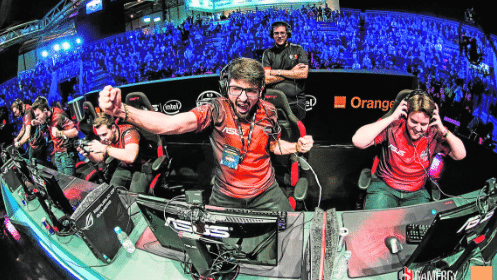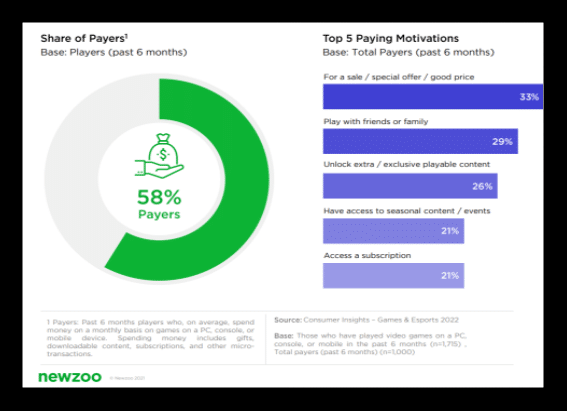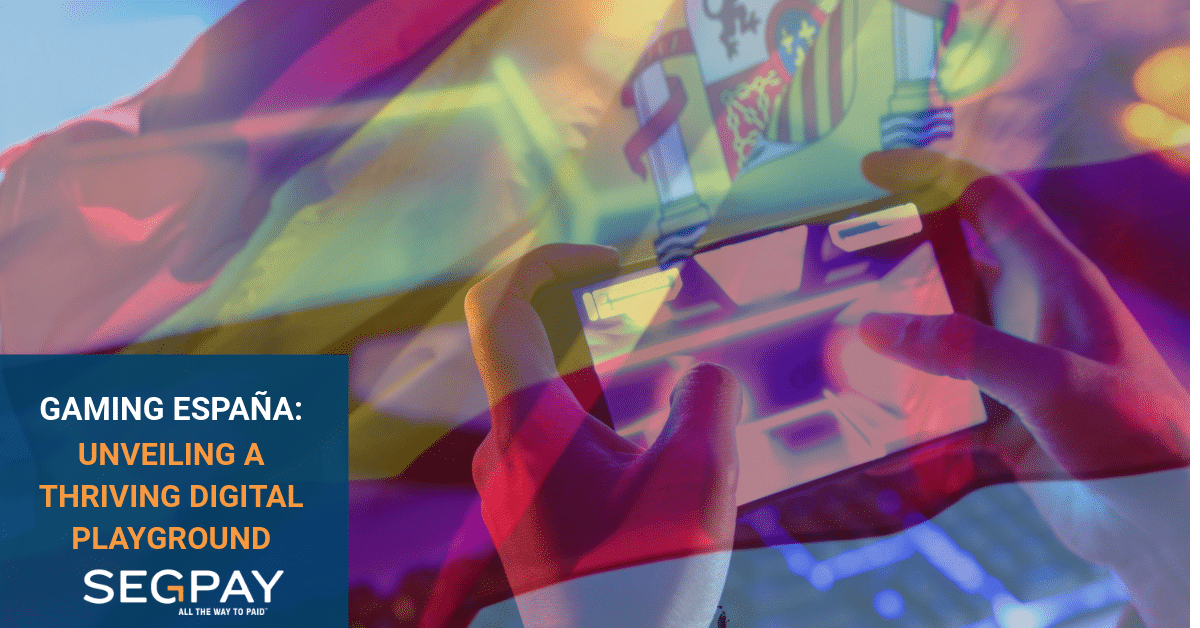- 8 minute read

The Spanish online gaming market boasts a unique blend of cultural influences, regulatory frameworks, technological advancements, and evolving consumer trends, contributing to its distinctiveness within the global gaming landscape.
Cultural Influences and Gaming Trends
Gaming holds a significant place in Spanish culture, reflecting a passion for both traditional and digital forms of entertainment. From the enduring popularity of console gaming to the rapid growth of online gaming communities, Spain’s gaming culture embodies a rich tapestry of diverse interests and preferences.
Spaniards engage fervently in various gaming genres, including esports, mobile gaming, console gaming, and online gambling. This broad spectrum of gaming interests shapes the market and contributes to its unique dynamics.
Regulatory Framework: Striking a Balance
Spain’s regulatory approach to online gaming has evolved to strike a balance between fostering a competitive market and ensuring responsible gaming practices. The country legalized online gambling in 2011, setting up a licensing framework that regulates and monitors operators.
This regulatory framework aims to protect consumers, prevent fraud, and promote responsible gaming behavior. Spain’s stringent licensing requirements for online gambling operators foster a secure environment while allowing for healthy market competition.
Flourishing Esports Scene
Esports have surged in popularity within Spain, with a dedicated community of players, teams, and enthusiastic fans. The country hosts various esports tournaments and events, displaying the talent and competitive spirit prevalent in the Spanish gaming community.
Spanish esports organizations and players have made a mark on the global stage, contributing to the growing recognition and professionalization of esports within the country. The rise of esports has further diversified the gaming landscape, attracting players and spectators across different age groups.
Spain has been hosting and participating in various international esports events across different gaming titles. Some of the main international e-sports events held in Spain or where Spanish teams/players have had significant participation include:
- Gamergy: Organized by Liga de Videojuegos Profesional (LVP), Gamergy is one of Spain’s largest gaming events incorporating esports tournaments, exhibitions, and gaming experiences. While it primarily focuses on national competitions, it has hosted international tournaments featuring games like League of Legends and Counterstrike: Global Offensive (CS:GO).
- ESL Spain National Championship: ESL (Electronic Sports League) hosts national championships in Spain for several popular esports titles, such as CS:GO, League of Legends, and others. While these are primarily national competitions, they often lead to international qualifiers or serve as a platform for Spanish teams to display their talent.
- DreamHack Spain: DreamHack, a well-known global esports and gaming festival, has organized events in Spain. DreamHack Valencia, for example, has hosted esports tournaments in various games like CS:GO, Hearthstone, and more. These events often attract international teams and players.
- LVP Superliga: Liga de Videojuegos Profesional organizes the LVP Superliga, a premier league for League of Legends in Spain. While it’s a national league, successful teams from the Superliga can progress to international competitions, such as the European Masters, offering a chance for Spanish teams to compete at a higher level.
- Twitch Rivals: While not an event exclusive to Spain, Twitch Rivals occasionally hosts esports tournaments involving Spanish streamers, gamers, and teams. These events can include various games and attract viewership from around the world.
- Red Bull events: Red Bull has organized esports events in Spain, such as Red Bull Player One, focusing on 1v1 League of Legends competitions. These events provide a platform for individual players to display their skills.
- Global esports tournaments hosted in Spain: Some major global esports tournaments occasionally choose Spain as a venue. For instance, games like CS: GO, League of Legends, and Dota 2 have held international tournaments in Spain, attracting top teams and players worldwide.
Mobile Gaming Revolution
Like global trends, mobile gaming has experienced exponential growth in Spain. The accessibility and convenience of smartphones have fueled the popularity of mobile games among a wide demographic. Mobile gaming has transcended age barriers from casual gamers to enthusiasts, becoming a mainstream entertainment choice.
Emergence of Live Streaming and Content Creation
Content creation and live streaming have become integral parts of the gaming culture in Spain. Influential Spanish gaming content creators, streamers, and YouTubers have amassed large followings, shaped trends, and influenced gaming communities.
The rise of platforms like Twitch and YouTube Gaming has provided a stage for Spanish gamers to display their skills, entertain audiences, and build communities around shared gaming interests. This phenomenon has expanded the reach of gaming culture and transformed it into a form of entertainment and social interaction.
Paying Players

Spanish gamers tend to use various payment methods for gaming-related purchases, with preferences evolving based on convenience, accessibility, and security. Over half of Spanish Gamers are willing to pay for their Gaming hobby.
Some of the popular payment methods among Spanish gamers include:
- Credit/Debit Cards: Credit and debit cards, particularly Visa and Mastercard, remain widely used for online gaming transactions in Spain. Many gamers prefer the convenience and ease of using cards for buying games, in-game items, subscriptions, or digital content from gaming platforms.
- Digital Wallets: Digital wallets like PayPal are favored by Spanish gamers for their added security and ease of use. They provide a secure method to make online purchases without directly sharing sensitive banking information.
- Prepaid Cards/Vouchers: Prepaid cards or vouchers, such as Paysafecard, are popular among gamers who prefer not to use their credit/debit cards online or those who want to control their spending. These vouchers can be bought from physical stores and used for gaming-related transactions without revealing personal financial details.
- Bank Transfers: Some Spanish gamers also use direct bank transfers or online banking methods, especially for larger transactions or when buying gaming subscriptions directly from gaming platforms.
- Mobile Payment Apps: Mobile payment applications like Apple Pay and Google Pay are gaining traction among tech-savvy gamers in Spain. These apps enable secure and convenient transactions using smartphones or other mobile devices.
- Cryptocurrency: While not as prevalent, some tech-oriented gamers in Spain may use cryptocurrencies like Bitcoin for certain gaming-related transactions, especially in digital asset trading or buying specific in-game items.
Challenges and Future Prospects
Despite the market’s growth, challenges persist, including concerns about responsible gaming, regulatory compliance, and balancing innovation and regulation. Addressing these challenges while fostering a thriving gaming ecosystem remains a priority.
Looking ahead, the Spanish online gaming market holds promising prospects. Technological advancements, evolving consumer behaviors, and a growing emphasis on community engagement present opportunities for continued growth and innovation within the industry.
Conclusion: A Dynamic Gaming Landscape
The Spanish online gaming market stands out for its diversity, cultural significance, regulatory framework, and technological advancements. From the thriving esports scene to the mobile gaming revolution and the influence of content creators, Spain’s gaming landscape highlights a vibrant mix of experiences and opportunities.
As the market continues to evolve, driven by a passionate gaming community and the interplay of technology and culture, the Spanish online gaming market is an exciting and dynamic force within the global gaming industry.
In summary, the Spanish online gaming market reflects not just entertainment preferences but a convergence of cultural influences, technological advancements, and regulatory frameworks that collectively shape a distinct and thriving gaming ecosystem.
Want to learn more?
Contact our experts if you want to know what added value services Segpay offers your Gaming business.
Reach out to us with your questions at [email protected]
****
This article was written by @SandeCopywriter on behalf of Segpay Europe



